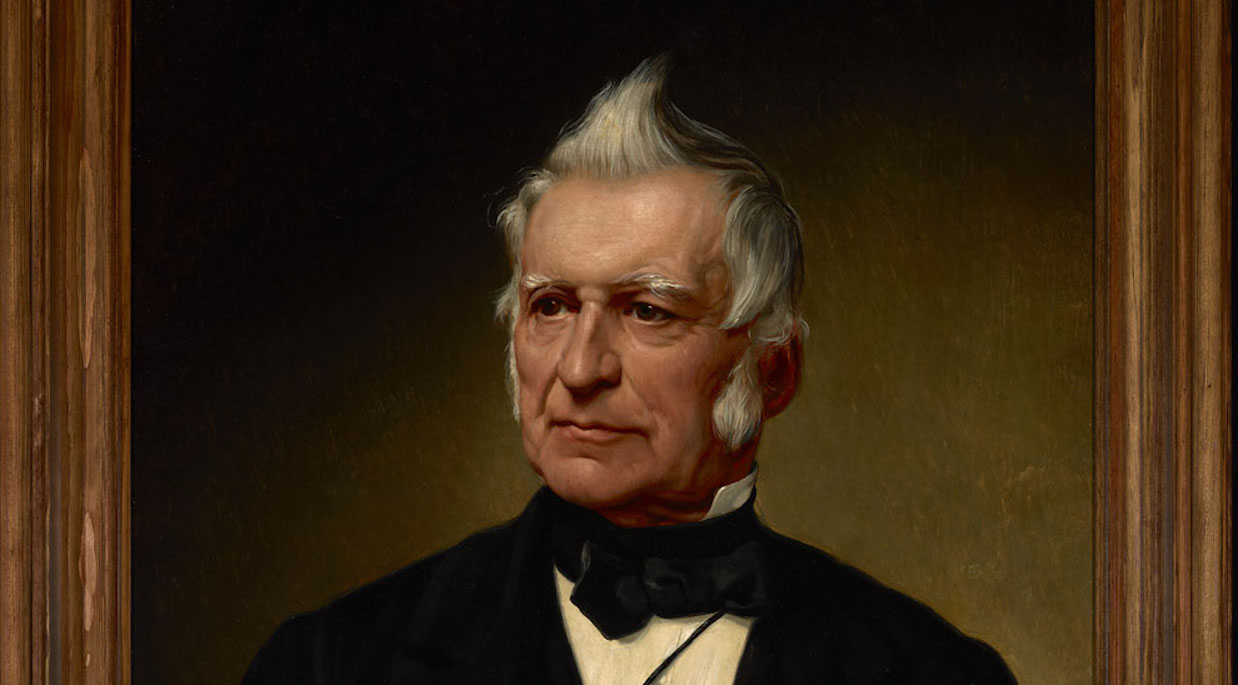
Mention “Papineau”, and two things might come to mind depending on the context: the man or the metro station. However, contrary to popular belief, despite the influence of Louis Joseph Papineau to the advancement and development of a nation’s consciousness, Papineau metro station is in fact named after his father, Joseph. Joseph, also a politician, was a notary and surveyor and gained enough money to buy a seigneurie. In consequence, the purchase came with a leap in social strata for the Papineaus to that of the happy few whose ideals that Joseph admired. Joseph was a monarchist and his wife Rosalie was a devout Catholic: Louis Joseph Papineau would reject both.
As part of a privileged upbringing, Papineau would attend the Sulpician seminary and, rejecting priesthood as his profession, became a lawyer. He continually expressed his unhappiness at his profession to his peers, his work leaving him unable to read and enjoy other pursuits. Breaking free from the slavery of his work, the constituency of Kent elected Papineau as their representative to the Legislative Assembly of Lower Canada in 1809 at the age of twenty-three. The young Papineau still believed that the English institutions imposed on Lower Canada, institutions built on the model of the English constitution, could work within the French-Canadian nationalism he endorsed.
Papineau rose quickly among the ranks of his chosen party, the Parti canadien. He became the Speaker of the Assembly in 1815 and in 1823, faced with the threat of the unifications of the two Canadas, went to London to fight for Lower Canada. When news came that Lower Canada and Upper Canada were indeed to remain separate, Papineau returned to Lower Canada heralded a hero by his fellow people. In the wake of Ezekiel Hart’s expulsion from the Legislative Assembly, a vote which Papineau had initially endorsed, the effects of Hart’s expulsion and Hart’s enduring loyalty to Lower Canada propelled Papineau to sponsor a bill that granted the Jewish community of Lower Canada full political rights, including the ability to sit in the Legislative Assembly. Increasingly opposed to the predominantly English opposition, the Torys, the Parti canadien was the first political party in Lower Canada that actually did things such as criticising the Tory budget and exposing corrupt Tory politicians.
Believers in agriculture as the principal mover of the economy and nationalism as the order of the day, the Parti canadien rebranded themselves the Parti Patriote in 1826. The party’s vision—and Papineau’s—changed to that of a revolution for the very identity of the French-Canadian people, the people that they represented in the Assembly. Towards the beginning of the next decade, Lower Canada and its two very different cultures would face a series of events of division and resistance. Arguably one of the fathers of what was to evolve into Quebec nationalism, it is Papineau and his party that would start a resistance within Lower Canada that would shake British North America to its very core and whose spirit would live within subsequent generations.




